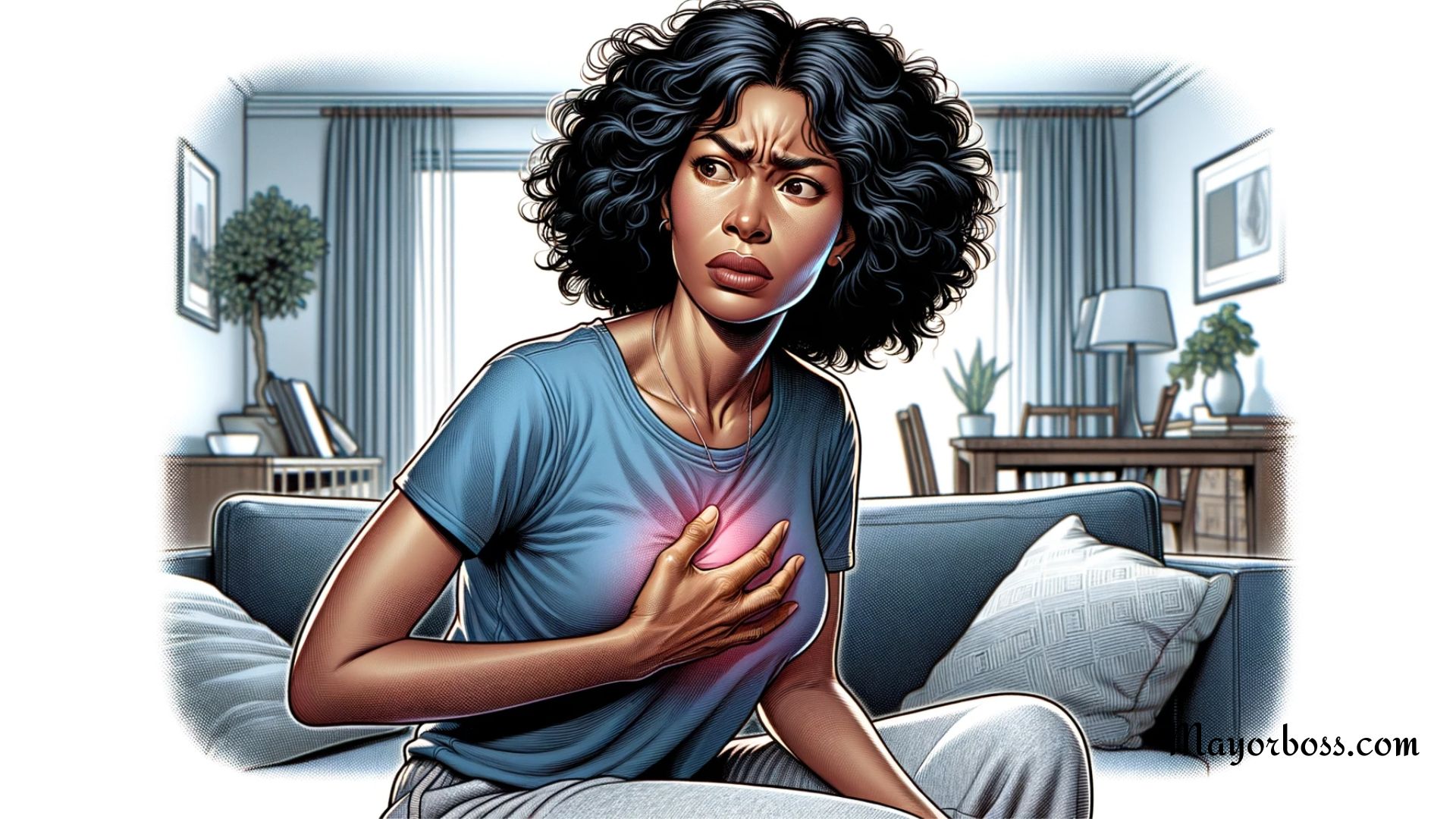Breast Pain: Reasons Your Breasts May Hurt
Breast pain, medically referred to as mastalgia, is a familiar sensation for many women. While it’s often associated with menstrual cycles, there’s a multitude of reasons you might feel discomfort in your breasts. From hormonal shifts to breastfeeding and even certain surgeries, we’ll break down why your breasts might be giving you trouble.

1. Hormonal Changes
Menstrual Cycle
Many women experience breast pain in the days leading up to their period. This is typically due to the hormonal fluctuations that occur during the menstrual cycle. Estrogen and progesterone, two key hormones, can cause the breast ducts and milk glands to swell, leading to discomfort.
Pregnancy
During pregnancy, your body undergoes numerous hormonal changes. As a result, many pregnant women report feeling tenderness or pain in their breasts, especially during the early stages.
Menopause
Menopause, the end of a woman’s reproductive years, can also be a time of breast discomfort. As your body adjusts to decreasing levels of estrogen, you might notice sporadic breast pain.
2. Breast Structure
The breast is composed of a mixture of fatty and glandular tissues. If you have more glandular tissue, you may experience more breast pain due to the sensitivity of this tissue type.
3. Large Breasts
People with larger breasts might experience pain simply due to the weight of the breast tissue. This can strain the chest muscles and lead to discomfort.
4. Medications
Some medications can lead to breast pain as a side effect. For example, certain antidepressants, antipsychotics, blood pressure drugs, and hormone therapies can result in discomfort. If you suspect your medication is the cause, it’s crucial to consult your doctor before making any changes.
5. Infections
Breast infections, known as mastitis, can cause breast soreness. Typically, mastitis is associated with breastfeeding, but it can affect any woman. Symptoms include redness, swelling, and warmth in the affected area. If you suspect an infection, it’s crucial to see a doctor. Treatment generally includes antibiotics and pain relievers.
6. Injuries or Strains
Just like any other part of your body, the breasts can be injured. An injury to the chest or strain from activities like heavy lifting can lead to breast pain. It’s essential to differentiate between pain due to an injury and other causes.
7. Cysts
Breast cysts are fluid-filled sacs or cysts that can form in the breasts. These cysts might be painful, especially if they’re large. They’re usually noncancerous and often don’t need to be treated since they may heal on their own. Doctors often use ultrasound to diagnose them.
8. Other Medical Conditions
Conditions like fibrocystic breast disease can cause lumpiness and pain in the breasts. Additionally, conditions unrelated to the breast, such as costochondritis (an inflammation of the chest wall), can mimic breast pain.
9. Ill-fitting Bras
Wearing a bra that doesn’t fit correctly can lead to sore breasts. It’s essential to get measured regularly and ensure that your bra offers adequate support.
10. Breastfeeding
Breastfeeding, while natural, can sometimes cause pain. Issues like engorged breasts, clogged milk ducts, sore nipples, being bitten, having dry, cracked skin, or infections like mastitis can result in discomfort. Ensuring proper latch and feeding positions can help mitigate some of these concerns. However, talk to your doctor or a lactation consultant.
11. Complications from Breast Implants
Breast augmentation comes with its set of risks. Complications from breast implants, such as capsular contracture (scar tissue forming around the implant) or implant rupture, can be painful. It’s vital to monitor any changes after surgery and consult with your surgeon if you experience pain or other symptoms.
12. Stress
While it might surprise you, stress can be a contributor to breast pain. When you’re stressed, your body releases cortisol, a hormone that can lead to inflammation and pain in various parts of the body, including the breasts.
13. Breast Surgery
If you’ve had surgery on your breasts, it’s common to feel pain during the healing process. Additionally, scar tissue might cause lingering discomfort.
14. Fibroadenomas
These are non-cancerous lumps in the breast. Though not typically painful, some people might feel discomfort. Medical experts recommend monitoring any breast lumps and consulting a healthcare professional.
15. Breast Cancer
While breast pain is typically not a sign of breast cancer, it’s crucial to be aware of other symptoms. If you notice a lump, skin changes, or discharge from the nipple, it’s essential to see a doctor.
When to See a Doctor
If your breast pain persists or becomes severe, or if you notice other symptoms like discharge, it’s time to see your doctor. Regular self-examinations and mammograms are vital for the early detection of any issues. So, if you’re concerned about your breast pain, don’t hesitate to reach out to your doctor.
